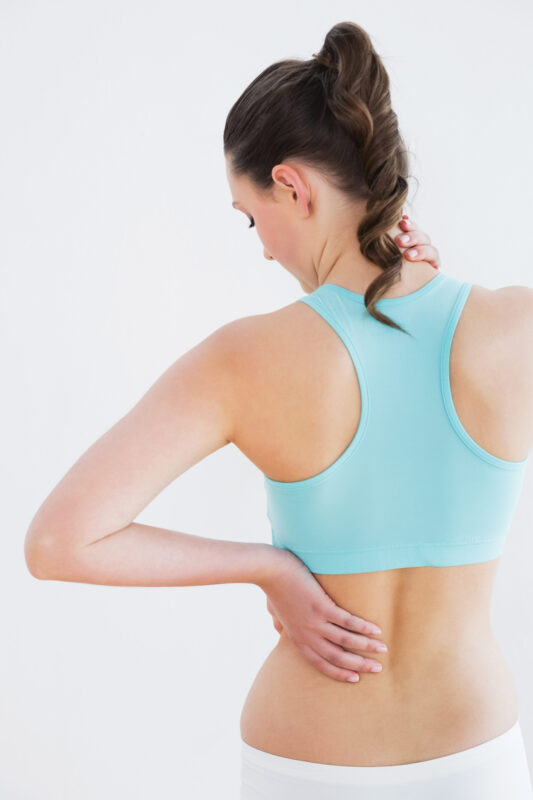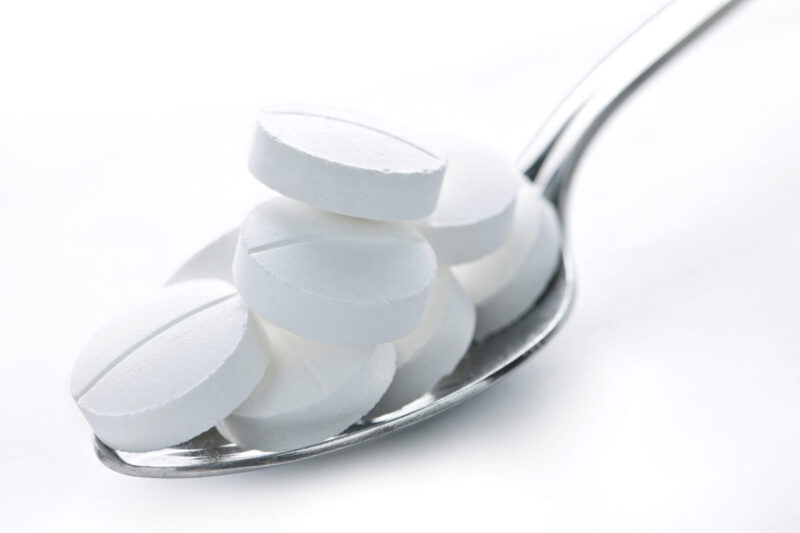As we age, our bones give way and we battle painful and debilitating conditions like arthritis and osteoporosis. But, with the right nutrition and adequate exercise, we can build strong bones and lead a pain-free, healthy life, says Dr Parul R. Sheth
You may think that you don’t have to worry about frail bones till you get old. But, you are wrong. Bone health is an important aspect of healthy living. Being a woman puts you more at risk of developing osteoporosis and broken bones than men. You need to take steps to help you keep your bones strong and healthy. Good lifestyle habits can protect your bones and keep them strong.
Bone facts
Your bones are continuously being broken down and rebuilt. Before the age of 30, your body creates new bones faster than it breaks down old bones, thus increasing bone mass. But, after the age of 30, bones reach peak bone mass and more bone is lost than gained. The ‘bone bank’ builds up during the teenage years and the factors that influence it include genetics and diet. For girls, the critical bone-building years are 9-18. The higher the peak bone mass, the lesser your risk of developing osteoporosis. Genetically, women have smaller and thinner bones than men. Also, post menopause because of the reduced oestrogen hormone levels, there occurs bone loss which can lead to osteoporosis.
What is osteoporosis?
Osteoporosis is a bone disease common in women. It is normal to lose some bone as we age. But if your bones are not healthy, you lose too much bone; your bones turn porous and you develop osteoporosis. You may have weak bones and you may not know about it. Weak bones break easily and this is the first sign of osteoporosis.
Osteoporosis affects all the bones in the body. However, bone breaking is more common in the hip, wrist and spine. A fracture in the vertebra can occur while climbing stairs, lifting heavy objects or bending forward.
Signs of osteoporosis
- Curved back
- Hunched posture
- Drooping shoulders
- Loss in height
- Protruding abdomen
- Back pain
Causes and risk factors that you cannot control
- Ageing
- Being a woman
- Menopause
- Prolonged absence of menstruation (amenorrhoea)
- Being very frail and thin with a small body frame
- Family history of osteoporosis
- Having type 1 diabetes, premature menopause, anorexia nervosa; an eating disorder, rheumatoid arthritis
- High thyroid hormones
Factors that you can control
- A sedentary lifestyle, lack of physical exercise
- A diet low in dairy products or calcium and vitamin D
- Smoking
- Alcohol abuse
- Long-term use of certain medications such as corticosteroids, cancer medicines, antacids that contain aluminium, anti-seizure medications, etc.

Do you have weak bones?
There are tools and tests to check your bone health. The most common one is the dual-energy X-ray absorptiometry (DXA or dexa scan), which takes X-rays of your bones and measures the bone density that tells you how strong or fragile your bones are. It is good to screen yourself for a bone density check if you are over the age of 65. If you have risk factors for osteoporosis, a bone density test is recommended even before the age of 65.
The Medication
In addition to the lifestyle changes, medicines can prevent future fractures. Biophosphonates are prescribed for prevention and treatment of postmenopausal osteoporosis. Selective oestrogen receptor modulators (SERMs) and calcitonin, a naturally occurring hormone can help slow the rate of bone loss. Parathyroid hormone helps new bone build faster than the old one, which breaks down. You may choose hormone replacement therapy (HRT) but recent studies suggest that this may not be a good option. Yet, Food and Drug Administration (FDA) recommends taking the minimum dose of HRT for a short time. Talk to your doctor before starting on any of these medications.
Prventing Bone Loss
It is never too late to start building your bones. But the best way to prevent you from getting osteoporosis is to build your bones during childhood and teen years. There are several ways to slow down natural bone loss due to ageing and prevent your bones from turning weak and brittle. Calcium is an important mineral for bone health because bones contain a lot of calcium. You can get calcium from your diet or through calcium fortified foods or calcium tablets or pills. The calcium need for women aged 19-50 is 1,000 milligram (mg) per day. For women older than 51 years of age, the recommended calcium intake is 1,200 mg per day. Pregnant and nursing women need as much calcium as other women of the same age. They should make sure that they get the recommended amounts of calcium and vitamin D. Food sources for calcium include low-fat dairy products such as milk, yogurt, calcium fortified tofu, soy milk and orange juice, green leafy vegetables including spinach, almonds, sardines, etc. Calcium absorption requires vitamin D. Vitamin D is made in the skin when it is exposed to sunlight. Experts suggest 10-15 minutes of exposure to morning sunlight three times a week to make enough vitamin D. Vitamin D production in the skin depends upon your skin colour, skin sensitivity, use of sunscreen and environmental pollution. Vitamin D can be had from milk, egg yolk and cooked salmon or from fortified food or by taking vitamin D pills measured in International units (IU). The recommended amount of vitamin D is 600 IU for women aged 19-70 and 800 IU for all those who are above 70.

Calcium supplements
Calcium supplements are available as tablets, capsules, chewy tablets, liquids and powders. Supplements are better absorbed when taken in small doses - 500 mg at mealtimes. Calcium supplements can cause side effects such as gas, constipation and bloating in the stomach. You can opt for the one that you think is most suitable for you.
The Common ones
- Calcium carbonate – 40 per cent elemental calcium, the cheapest available
- Calcium citrate – 21 per cent elemental calcium
- Calcium lactate – 13 per cent elemental calcium
- Calcium gluconate – 9 per cent elemental calcium
Amongst the many calcium compounds, which contain varying amounts of the mineral or elemental calcium, calcium citrate is absorbed well when taken with or without food. Some calcium supplements are combined with vitamin D or magnesium. A recent study from the National Institutes of Health (NIH), Bethesda, Maryland, US, suggests that there is an increased risk of cardiovascular diseases or heart attack for both men and women. Talk to your doctor before taking calcium supplements for good bone health or as a treatment or prevention for osteoporosis or any other bone problem.


